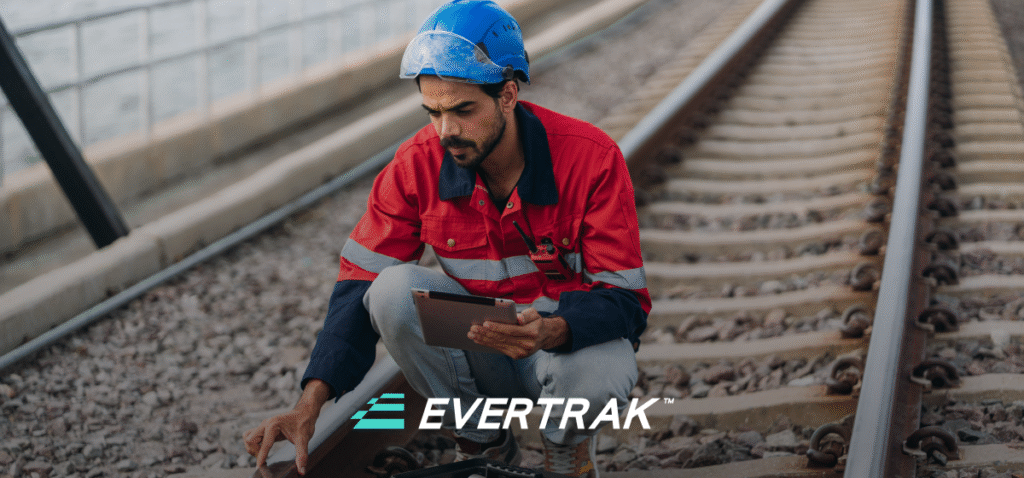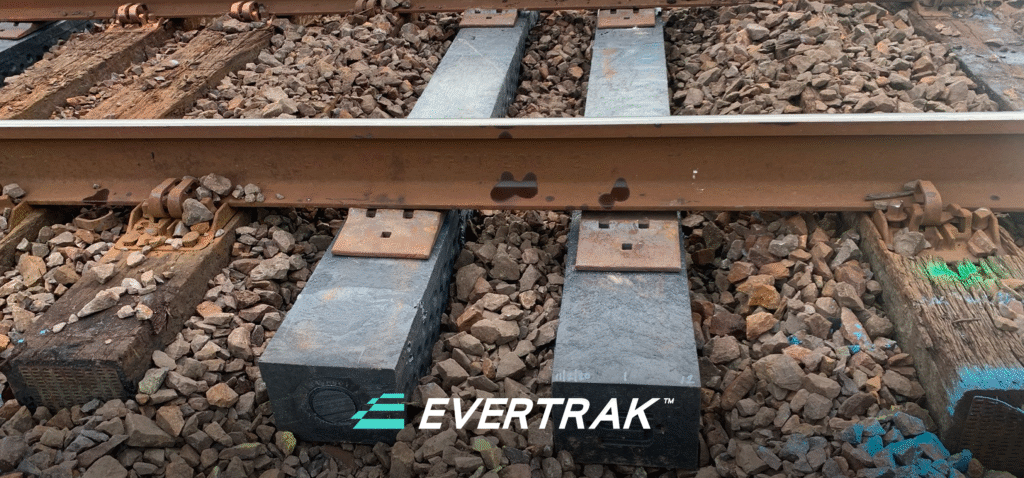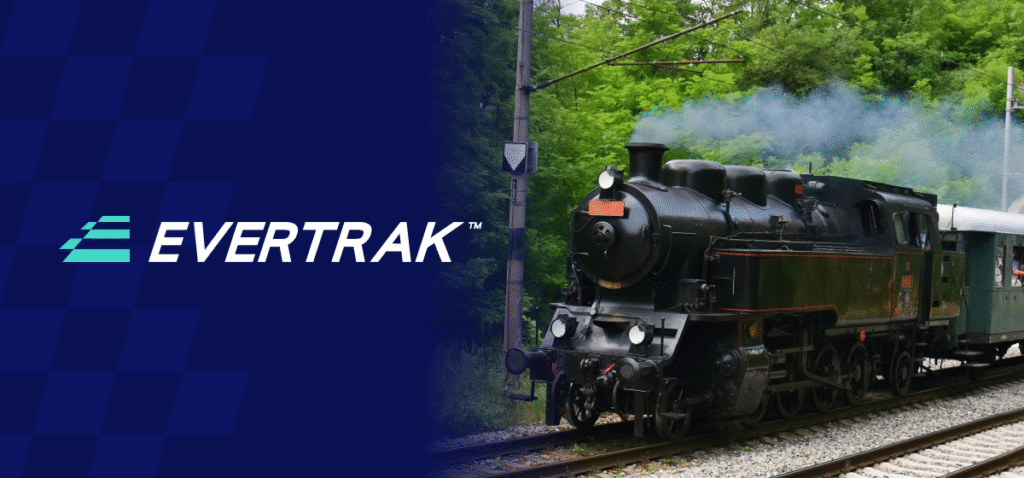More than 600 freight railroads operate across the United States, covering approximately 140,000 miles of railroad tracks. Railroads, a critical part of the North American transportation network, face significant challenges with their reliance on traditional wood ties.
Creosote-treated wood, the material of choice for over 90% of the ties installed annually in North America alone, is increasingly problematic. Deforestation, toxic chemical leaching, and high replacement rates due to decay and damage are just some of the issues plaguing wood railroad ties.
However, an innovative alternative is gaining traction to replace wooden ties: reinforced composite ties. Leading this shift is Evertrak. Our groundbreaking Evertrak 7000 ties are made from recycled materials like plastic and glass fiber reinforced polymer (GFRP).
By leveraging recycled plastic, this advanced composite railroad tie technology is poised to disrupt the industry and offer superior durability, sustainability, and performance when compared to wood, even under extreme weather conditions.
The Pitfalls of Wood Ties
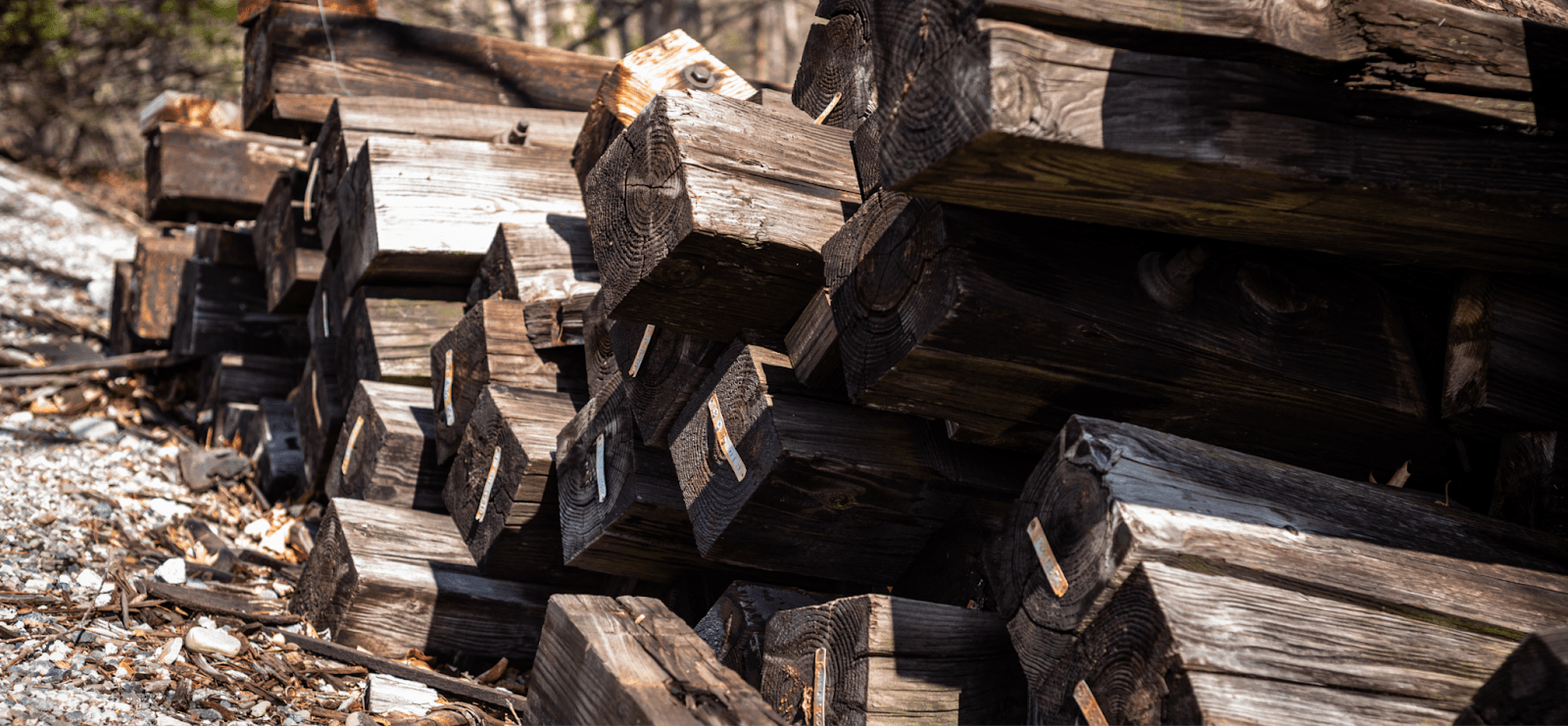
For nearly two centuries, wood has been the go-to material for railroad ties. But the drawbacks are becoming harder to ignore:
- Railroad industry estimates show most wooden ties have a limited lifespan of approximately 20 years, ranging from 8-15 years before they need to be replaced in regions with high moisture and insect activity.
- Preservatives like creosote—used to extend the life of wooden ties—contain known carcinogens. Additionally, creosote-coated railroad ties have contributed to contaminates in soil, air, and groundwater. This is important to note, as creosote removal has been associated with the release of cancer-causing chemicals to nearby areas and populations.
- Demand for wooden ties contributes to deforestation, with 6 million mature trees harvested annually for the production of around 22 million wood railroad ties in the U.S. alone.
- Performance of typical wooden ties is inconsistent and vulnerable to damage and decay. This accelerates replacement cycles and degrades track integrity.
- Other alternatives to wood have emerged, including plastic ties, rubber ties, and concrete ties. However, many of these alternative materials have faced various challenges in performance and adoption rates.
In short, wood ties are costly, increasingly scarce, environmentally detrimental, and unable to meet the demands of modern, high-volume rail lines. The industry is long overdue for a better composite tie solution—and Evertrak is delivering it.
Evertrak 7000 Railroad Ties: Engineered for Endurance and Sustainability
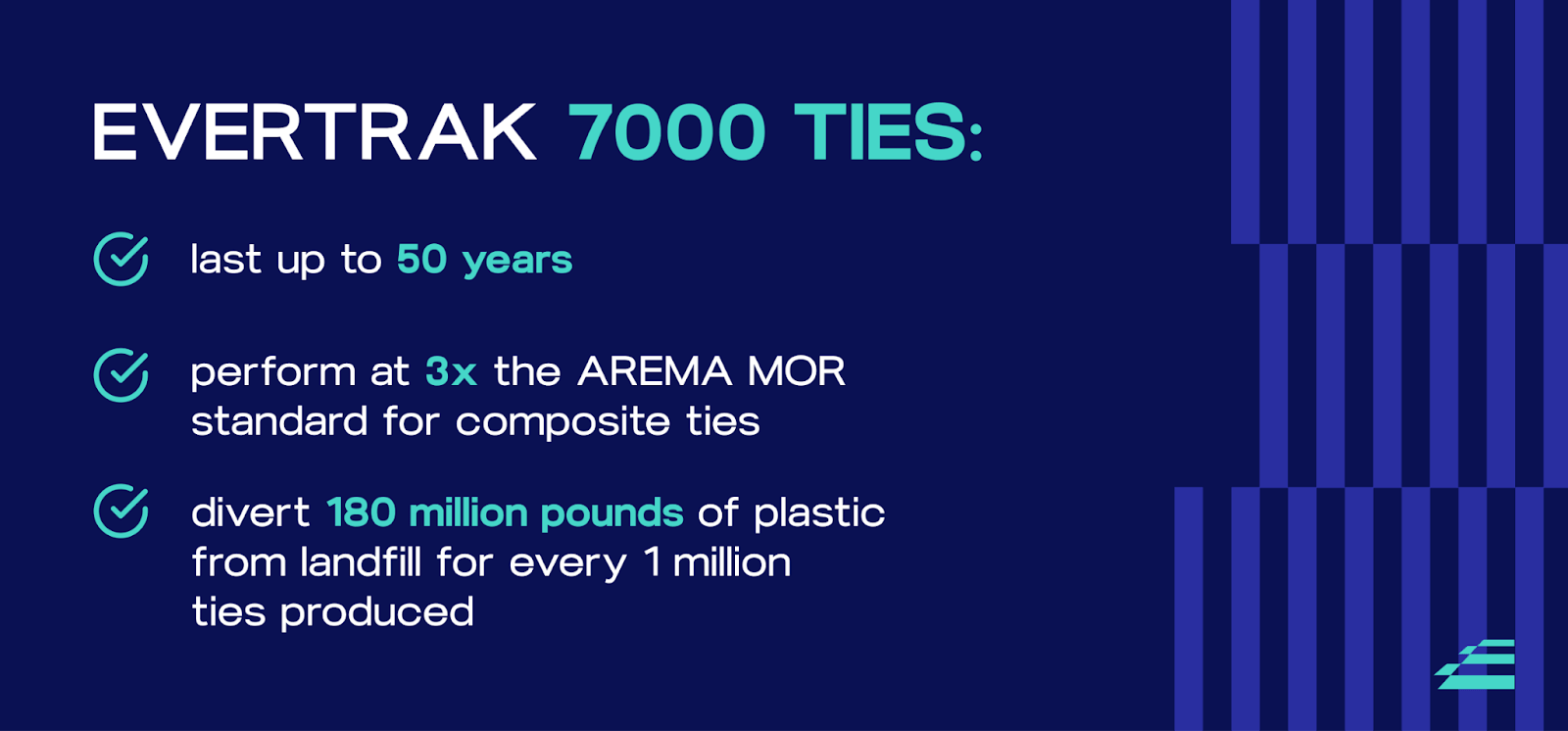
The Evertrak 7000 stands out as the first reinforced composite ties specifically designed for the demands of North American heavy haul and transit rail. By using recycled plastic, these ties combine the stiffness and strength of hardwood with unparalleled durability and consistency. Many other positive attributes of our composite railroad ties include:
- Lifespan of up to 50 years in any environment, including high-decay regions
- Validated fatigue models demonstrate 3x the AREMA standard for composite railroad ties
- 180 million pounds of plastic are diverted from landfill at a production rate of 1 million railroad ties per year
- Fully interchangeable with wood ties for gradual, cost-effective implementation
- Free from preservatives that release cancer-causing chemicals into the soil, like creosote
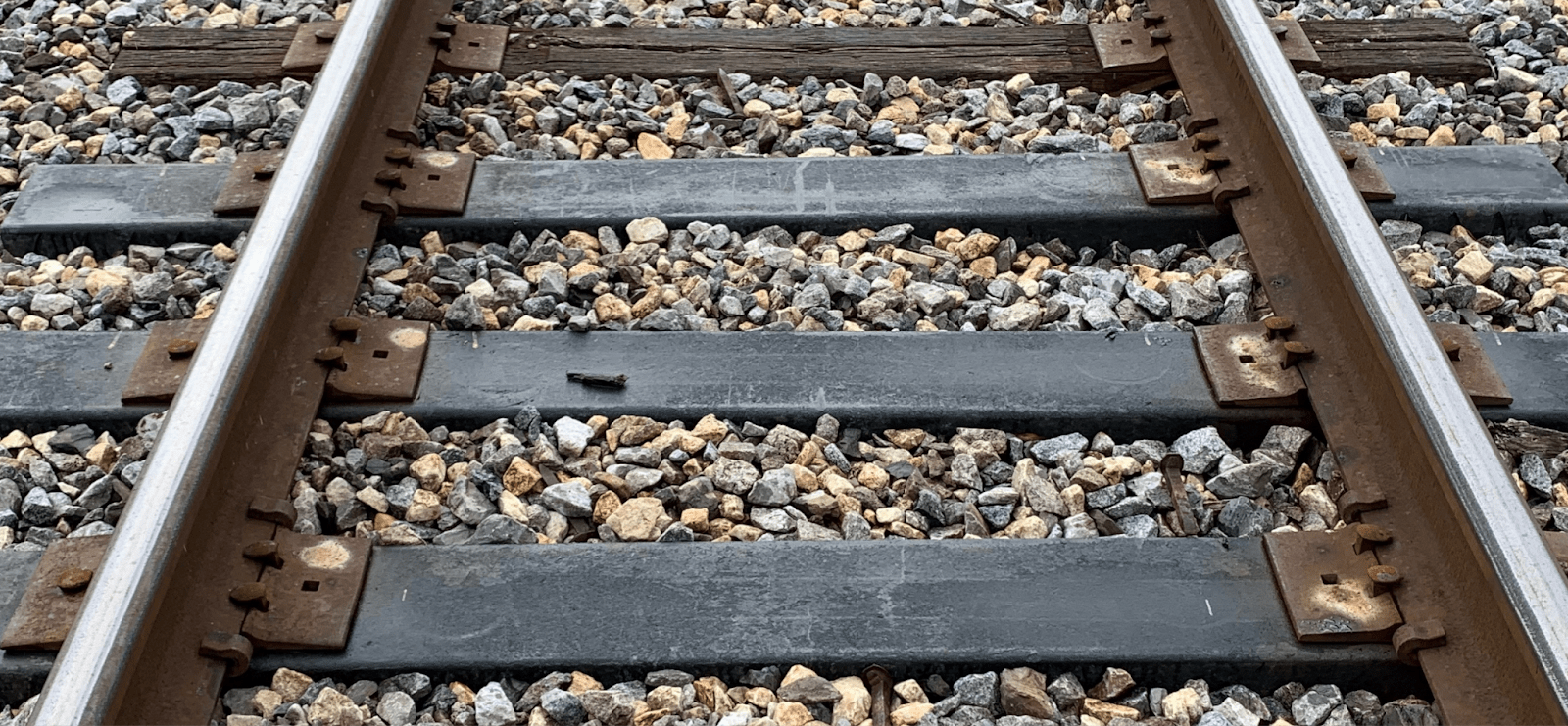
By lasting up to five times longer than wood railroad ties, Evertrak 7000 composite ties drastically reduce replacement frequency, issues with railroad tie application, disruptions to rail operations, and associated maintenance costs. Even when compared to concrete ties, railroads can realize significant savings in materials, labor, equipment, and operational downtime over the ties’ extended service life by choosing Evertrak’s composite railroad ties.
When they do finally need replacing, our composite ties can be melted down and recycled again, supporting a circular economy. For every million railroad ties produced, Evertrak saves 250,000 mature trees from being felled.
Proven Performance, Trusted by Industry Leaders

Our composite railroad ties have been rigorously tested and field-proven, instilling confidence in their consistency and durability. Leading Class 1 railroads like Union Pacific have qualified and adopted the Evertrak 7000 tie to reduce maintenance costs and improve track reliability, especially in challenging conditions.
Independent lab testing confirms Evertrak’s in-track performance. Accelerated real-world testing conducted by MxV, along with Finite Element Models, shows that unlike wood and other plastic ties, our GFRP composite railroad ties don’t need to be replaced as often. They maintain their strength far longer than alternatives, even in challenging environments.
Composite Ties: The Future of Railroad Infrastructure
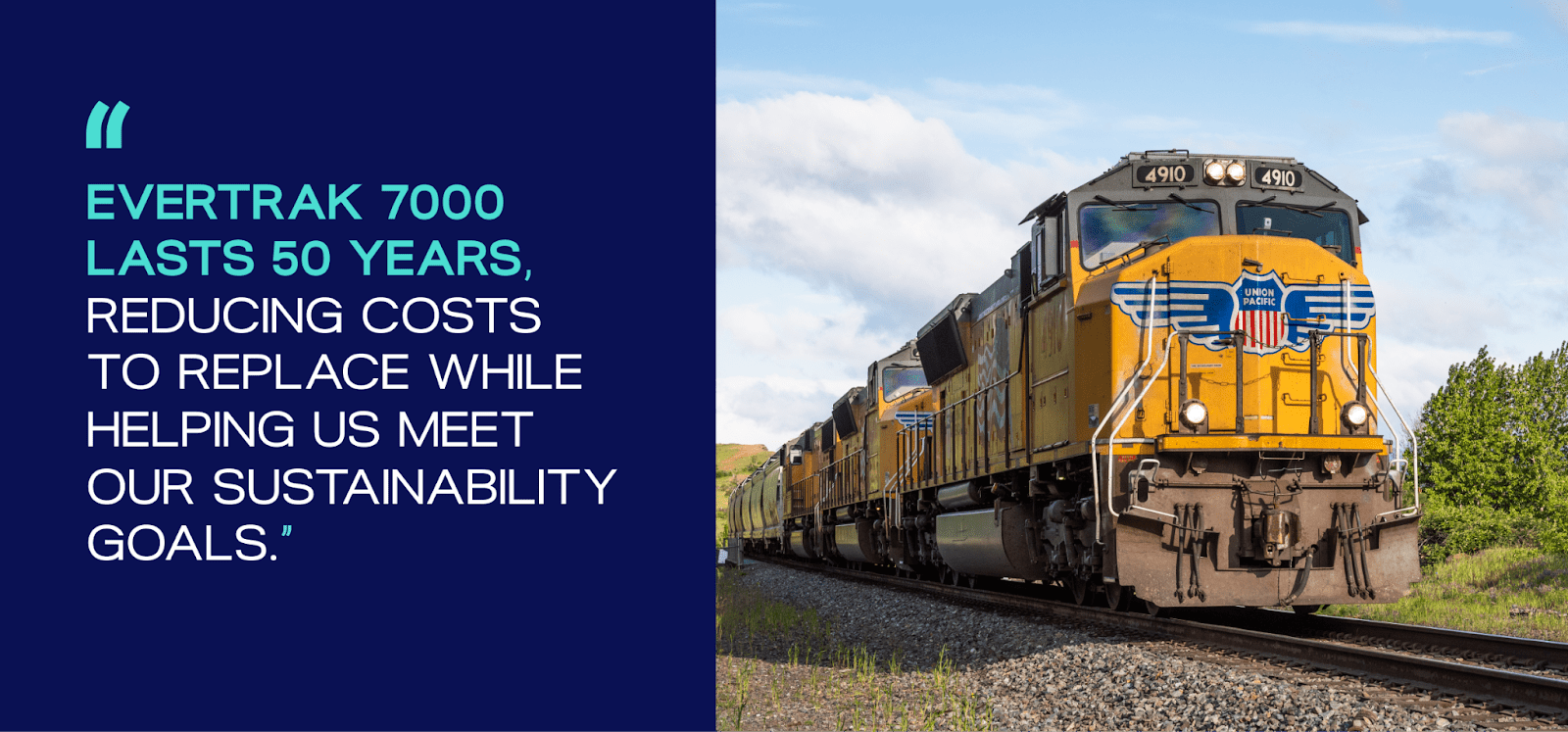
As environmental pressures mount and wood tie quality declines, reinforced composite ties like the Evertrak 7000 are no longer just an alternative—they’re a necessity. Railroads that adopt this sustainable, durable technology position themselves to resist rotting and achieve success in an industry where efficiency and reliability are paramount.
The benefits extend beyond the bottom line. By reducing CO2 emissions, plastic pollution, and reliance on toxic chemicals, composite railroad ties help railroads not just meet but exceed their ESG (environmental, social, and governance) targets. By choosing Evertrak 7000, railroads aren’t just upgrading their infrastructure—they’re investing in a future where sustainability and peak performance go hand in hand.
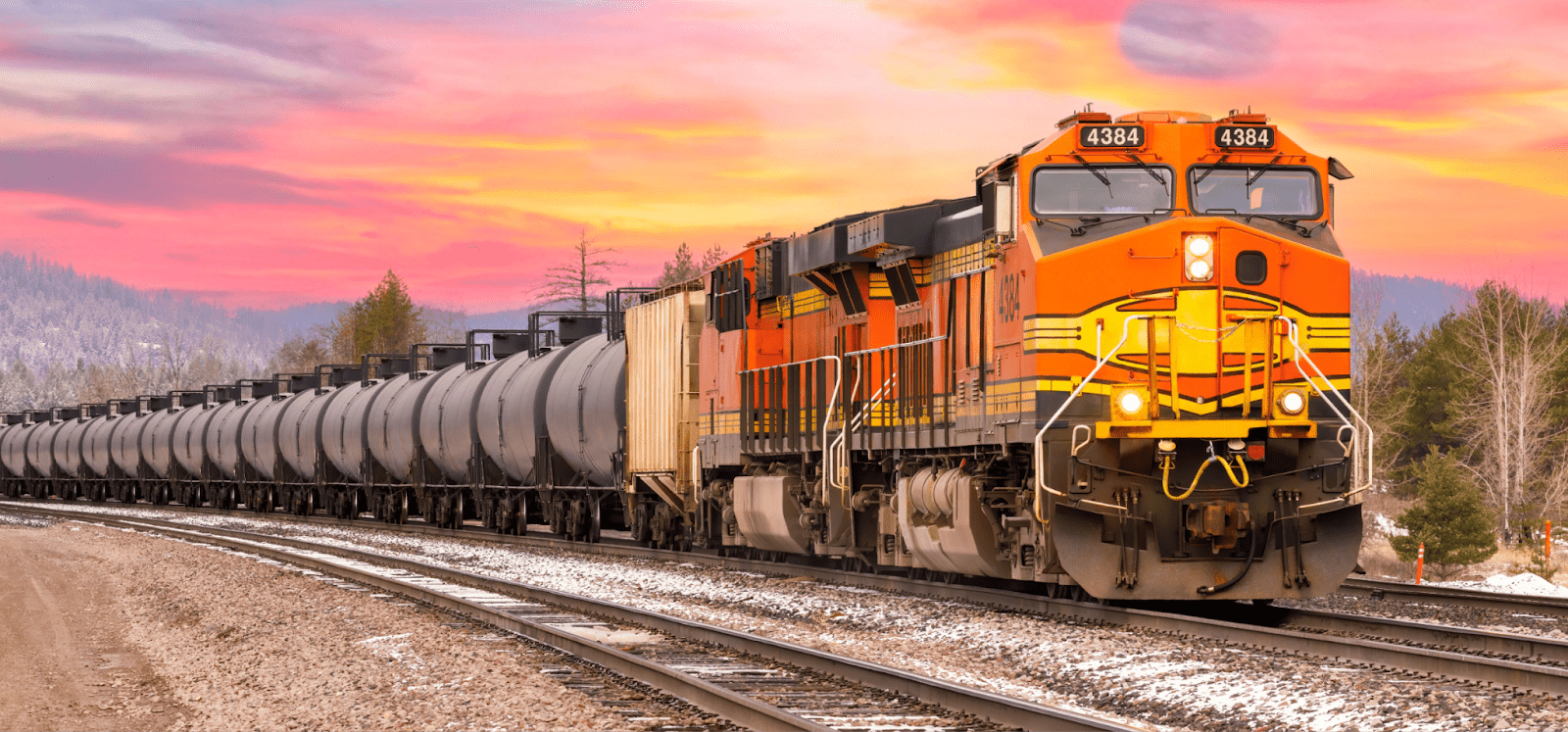
Evertrak is committed to manufacturing durable railroad ties and real-world innovation that drives the industry forward—without reliance on hazardous chemicals and waste.
Our veteran-owned, U.S.-based operations are creating American jobs while solving global challenges. As rail networks continue to expand and modernize, the demand for sustainable, high-performance solutions will only grow. The Evertrak 7000 represents more than an alternative to traditional wood ties—it’s a blueprint for how innovation can transform a centuries-old industry while protecting our environment for future generations.


